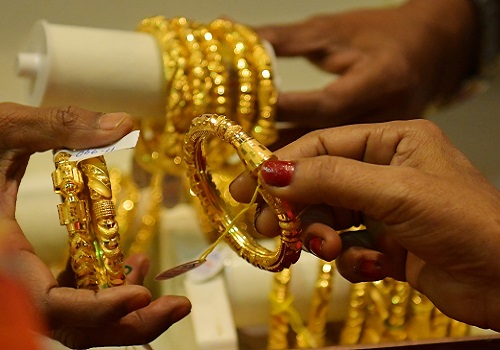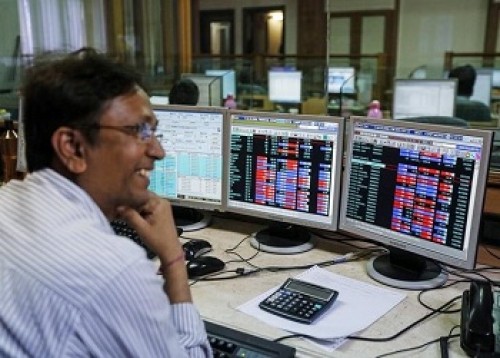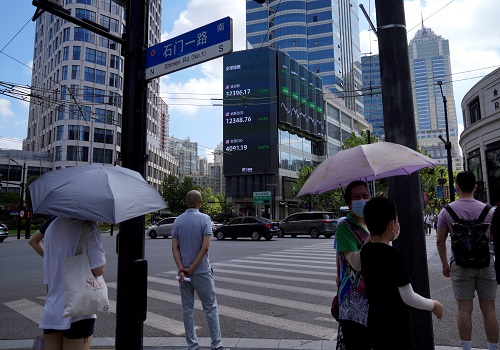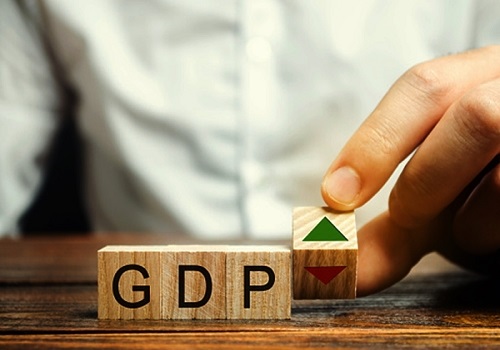Markets likely to make cautious start on Wednesday

Follow us Now on Telegram ! Get daily 10 - 12 important updates on Business, Finance and Investment. Join our Telegram Channel
Indian markets snapped their gaining streak to end flat with a negative bias on Tuesday after its manufacturing PMI fell to an 8-month low, offsetting better-than-expected GDP numbers. Today, the markets are likely to make cautious start amid mixed global cues. Investors will track the RBI’s 3-day monetary policy meeting that begins later in the day, amid expectations that inflation and growth concerns could see the monetary policy committee (MPC) maintain an accommodative stance. Traders will be concerned with report that the second Covid wave has led to a sudden spike in India’s unemployment rate - it rose to 11.9% in May from 7.97% in the previous month. The rate had last reached double digits in June last year, when it was 10.18%. According to the Centre for Monitoring Indian Economy (CMIE) data, barring April, May and June last year, the monthly unemployment had never breached the double-digit mark at least since January, 2016. There will be some cautiousness as India reported 133,228 fresh Covid-19 infections, taking the caseload to 28,306,883. With 3,205 new fatalities, the death toll is now at 335,114, Worldometer showed. India continues to be the second worst-hit nation. Also, Moody’s Investors Service pegged India’s GDP growth at 9.3 percent in the current fiscal ending March 2022 and 7.9 percent in FY23. The reimposition of lockdown measures along with behavioural changes on fear of contagion will curb economic activity, it said, adding that it does not expect the impact to be as severe as during the first wave. There will be some buzz in automobile industry stocks as the government proposed exempting battery-operated vehicles from the requirement of fee payment for registration certificates. In this regard, the Ministry of Road Transport and Highways has issued a draft notification proposing the exemption for Battery-Operated Vehicles (BOVs). NBFCs and HFCs stocks will be in focus with ICRA’s report that restrictions in movements imposed by various states are likely to impact collections of non-banking financial companies (NBFCs) and housing finance companies (HFCs), which may see NPAs rising to 4.5 - 5 per cent by March 2022. There will be some reaction in aviation stocks with a private report that airlines are slashing salaries and re-negotiating vendor contracts as drastic fall in passengers has hurt revenue. Power stocks will be in limelight as power ministry data showed that power consumption in the country witnessed an 8.2 per cent year-on-year growth in May at 110.47 billion units (BU), indicating slow recovery in commercial and industrial demand of electricity.
The US markets ended mostly lower on Tuesday with declines in healthcare and tech shares. Asian markets are trading mixed on Wednesday with official data showing higher-than-expected growth in Australia’s economy for the first quarter.
Back home, after 4-day winning run, stock market bulls took a breather on Tuesday with benchmark indices ending flat, erasing all of the morning gains. Key indices staged a gap up opening, as better-than-expected GDP numbers supported the market sentiments. Amid the coronavirus pandemic, India's GDP grew at 1.6% in the January-March quarter of the fiscal year 2020-21, higher than the street forecast, but witnessed a contraction of 7.3% for the entire fiscal year. Even then, the figure beat the CSO's estimate of 8% contraction. Some optimism also came with Chief Economic Adviser K V Subramanian’s statement that the overall impact of the second wave of Covid-19 on the country's economy is not likely to be large but cautioned about an uncertainty surrounding the pandemic going ahead. Besides, the output of eight core sectors jumped by 56.1% mainly due to low base effect and uptick in production of natural gas, refinery products, steel, cement and electricity. However, owing to selling pressure in metal, basic materials and banking shares at higher levels on account of profit-booking led to correction in the markets. Sentiments got hit, after India's manufacturing sector activity witnessed a significant loss of growth momentum in May due to the intensification of the COVID-19 crisis and its detrimental impact on demand. The seasonally adjusted IHS Markit India Manufacturing Purchasing Managers' Index (PMI), fell to 50.8 in May, down from 55.5 in April, as companies observed the slowest rises in new work and output in ten months amid the intensification of the COVID-19 crisis. Traders remained cautious with a FICCI's Business Confidence Survey stating that the business sentiment in the country has been deeply impacted due to the second wave of coronavirus infections. It said that the overall business confidence index has nosedived and stood at 51.5 in the current round after reporting a decadal high value of 74.2 in the previous survey round. Some concern also came as the Organisation for Economic Co-operation and Development (OECD) cut its growth projection for India for FY22 to 9.9 per cent from 12.6 per cent estimated in March, as the second wave of coronavirus infections has paused economic recovery in Asia's third largest economy. Finally, the BSE Sensex fell 2.56 points to 51,934.88, while the CNX Nifty was down by 7.95 points or 0.05% to 15,574.85.
Above views are of the author and not of the website kindly read disclaimer










Tag News

Weekly Market Analysis : Markets strengthened recovery and gained nearly 2% in the passing w...





 320-x-100_uti_gold.jpg" alt="Advertisement">
320-x-100_uti_gold.jpg" alt="Advertisement">








